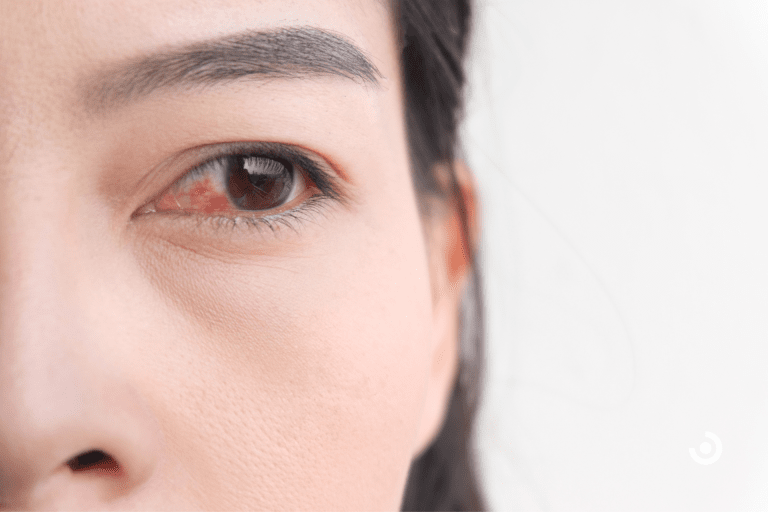Uterine Cancer
Can medical marijuana help people with symptoms of Uterine Cancer? Find out more below.
What is Uterine Cancer?
Uterine or endometrial cancer begins in the uterus’s cells, a hollow, muscular, pear-shaped organ in a woman’s pelvis where a fetus develops during pregnancy. The uterus comprises two main layers: the endometrium (the inner lining) and the myometrium (the outer muscular layer).
Uterine cancer usually starts in the endometrium, the inner lining of the uterus, and is often called endometrial cancer. It is the most common type of cancer affecting the female reproductive system. There is another, less common type of uterine cancer called uterine sarcoma, which begins in the myometrium or the connective tissue supporting the endometrium.
How common is it?
Uterine cancer is the most common cancer affecting the female reproductive system. In the United States, it is estimated that approximately 1 in 35 women will develop uterine cancer at some point during their lifetime. According to the American Cancer Society, in 2021, there were about 66,570 new cases of uterine cancer and around 12,940 deaths due to the disease.
Although uterine cancer can occur at any age, it is more commonly diagnosed in postmenopausal women, with most cases occurring in women over 50. Early detection and treatment can significantly improve the prognosis and chances of survival.
What causes Uterine Cancer?
The exact cause of uterine cancer is not fully understood, but it is thought to be related to a complex interplay of genetic, hormonal, and environmental factors. Some of the known risk factors for uterine cancer include:
- Obesity: Excess body fat can increase estrogen levels, which can stimulate the growth of the endometrial lining and potentially lead to cancer development.
- Age: The risk of uterine cancer increases with age, with most cases occurring in women over 50.
- Estrogen exposure: Prolonged exposure to estrogen without the balancing effect of progesterone can increase endometrial cancer risk.
- Hormone therapy for breast cancer: Certain types of hormone therapy, such as tamoxifen, can increase the risk of developing uterine cancer.
- Family history: Having a close relative with uterine cancer may increase a woman’s risk of developing the disease.
- Inherited cancer syndromes: Some genetic syndromes, such as Lynch syndrome (hereditary non-polyposis colorectal cancer or HNPCC), can increase the risk of developing uterine and other types of cancer.
Are there types or stages?
Yes, there are types and stages of uterine cancer. The two main types of uterine cancer are:
- Endometrial cancer: This is the most common type of uterine cancer, originating in the endometrium, the inner lining of the uterus. Endometrial cancer can be classified into subtypes, such as endometrioid, serous, and clear cell carcinoma.
- Uterine sarcoma: This rare type of uterine cancer begins in the myometrium (the muscular layer of the uterus) or the connective tissue supporting the endometrium. Uterine sarcomas include leiomyosarcoma, endometrial stromal sarcoma, and undifferentiated sarcoma.
Uterine cancer is also classified into stages, which describe the extent of the disease:
- Stage I: The cancer is confined to the uterus.
- Stage II: The cancer has spread to the cervix but remains within the uterus.
- Stage III: The cancer has spread beyond the uterus but not as far as the rectum or bladder. It may have spread to the nearby lymph nodes, fallopian tubes, ovaries, or vagina.
- Stage IV: The cancer has spread to the rectum or bladder (stage IVA) or distant organs such as the liver, lungs, or bones (stage IVB).
Staging is crucial in determining the appropriate treatment plan and assessing a patient’s prognosis.
Signs & Symptoms
Symptoms of uterine cancer may include abnormal vaginal bleeding (such as postmenopausal bleeding, heavy periods, or bleeding between periods), pelvic pain, pain during intercourse, or an enlarged uterus. It is essential to consult a healthcare professional if you experience any of these symptoms, as early detection can improve treatment outcomes.
Diagnosis & Treatment
Diagnosis of uterine cancer typically involves a physical exam, medical history review, and additional tests such as a transvaginal ultrasound or an endometrial biopsy. Treatment options may include surgery (hysterectomy), radiation therapy, chemotherapy, hormone therapy, or a combination, depending on the stage and type of cancer and the patient’s overall health and preferences.
Can medical cannabis help?
Medical cannabis has been suggested as a potential supportive treatment for some cancer patients, including those with uterine cancer. Medical cannabis is not a cure for cancer, however, it may help alleviate some symptoms and side effects related to the disease or its treatments. Some potential benefits of medical cannabis for cancer patients include the following:
- Pain relief: Medical cannabis has been found to help reduce chronic pain in some patients. A study published in the Journal of Pain (2015) showed that medical cannabis users experienced a 64% decrease in opioid use and significantly improved pain relief and quality of life.
- Nausea and vomiting: Some studies have shown that medical cannabis can help alleviate chemotherapy-induced nausea and vomiting (CINV). A review published in the Journal of the American Medical Association (2015) found that cannabinoids were more effective than placebo in reducing CINV.
- Appetite stimulation: Medical cannabis may help stimulate appetite in cancer patients who experience weight loss and lack of appetite due to chemotherapy or the disease itself. A study published in the Journal of Clinical Oncology (2011) found that dronabinol, a synthetic cannabinoid, was effective in increasing appetite and stabilizing weight in patients with advanced cancer.
- Anxiety and mood: Some research suggests that medical cannabis may help alleviate anxiety, depression, and sleep disturbances in cancer patients. A study published in the Journal of Palliative Medicine (2018) found that medical cannabis use was associated with significantly improved anxiety, depression, and sleep in cancer patients.
Research on medical cannabis for cancer patients is ongoing, and more robust, large-scale clinical trials are needed to establish its safety and efficacy. Additionally, the use of medical cannabis may not be appropriate for every cancer patient, and it is crucial to consult with a healthcare professional before considering its use. Medical cannabis laws and regulations vary by jurisdiction, so knowing local rules and guidelines is essential.
Last Updated: June 14, 2024
Get Your Medical Card
Connect with a licensed physician online in minutes
Table of Contents
Keep Reading
-
Why Does Weed Make Your Eyes Red?
Weed is known to cause bloodshot eyes, but why? This article dives into the science behind why weed makes your eyes red.
-
How To Incorporate Cannabis In Your Meditation Practice
Unlock the secrets of enhancing your meditation practice with cannabis. Elevate your mind, body, and soul to new heights by learning how to incorporate cannabis in your meditation. Click now and elevate your practice today!
-
Unveiling The Secret Language of Weed Nodes
Explore the hidden language of cannabis with this eye-opening article. Learn why weed nodes are crucial and unlock the secrets of this fascinating plant.



